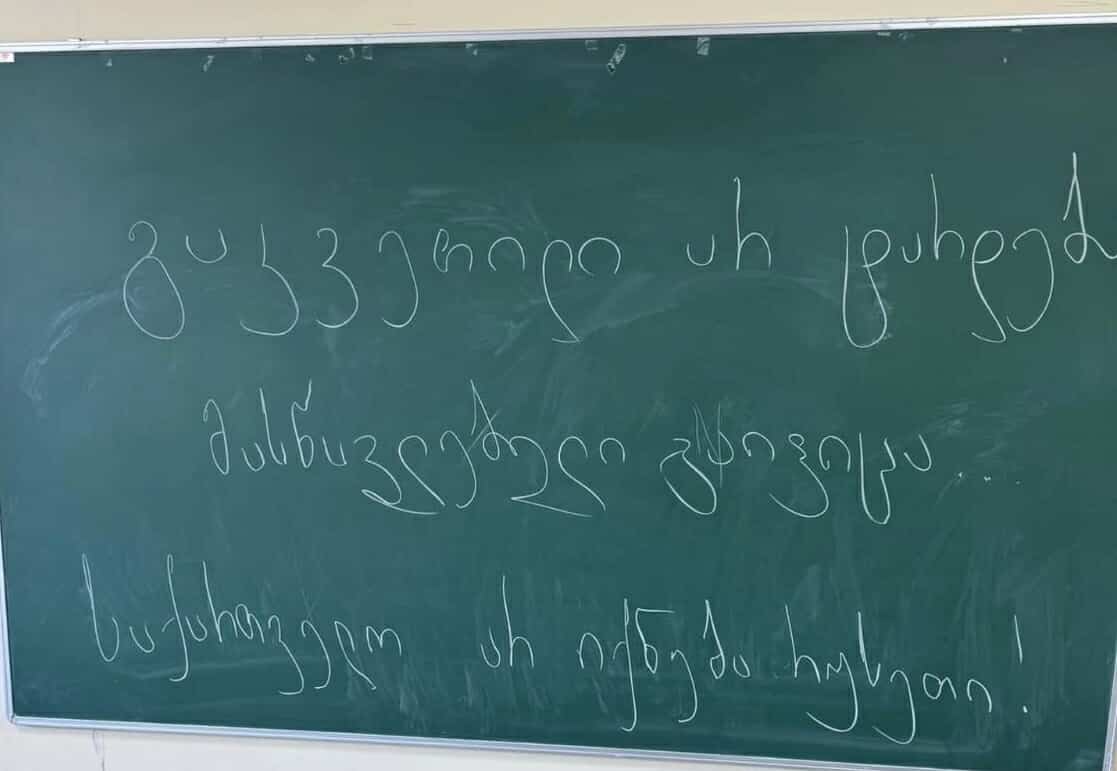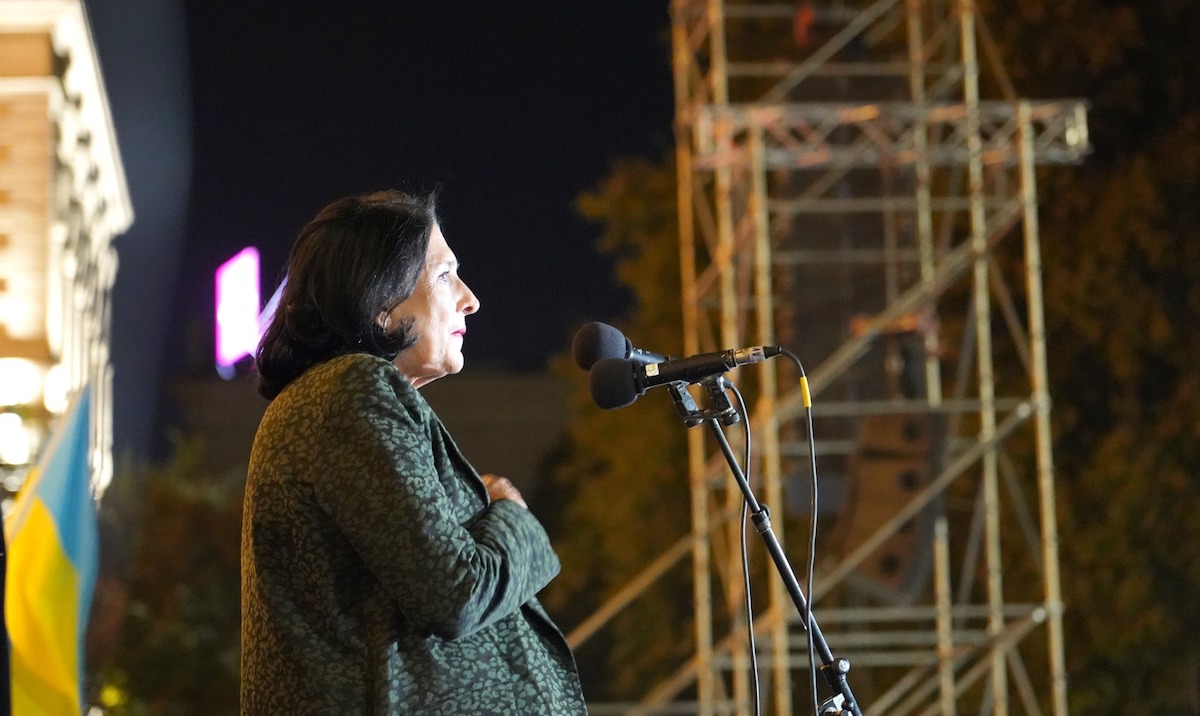Opinion: "After Georgia, Russia will target Armenia"
Impact of Georgian protests on Armenia
Georgia’s decision to suspend its European integration and the subsequent mass protests are actively discussed in Armenia. Experts emphasize the importance of viewing these developments not only through the lens of Georgia‘s domestic politics but also in terms of their potential impact on the region as a whole, particularly on Armenia.
“Some Azerbaijani media outlets claim an Armenian attack on Azerbaijan is imminent. This suggests that, after dealing with Georgia, Russia will turn its focus to Armenia,” says political scientist Robert Gevondyan. He adds that Azerbaijan may be creating an informational pretext to invade Armenia with Russia’s agreement. “Moreover, if the Russian-Ukrainian front stabilizes, Russia may have the capacity to implement this plan,” he notes.
International affairs expert Giorgi Tumasyan believes that after “colonizing Georgia,” Moscow’s next objective will be integrating Armenia into the Russia-Belarus Union State. He predicts that a “fifth column,” referring to Armenia’s pro-Russian opposition, will play a key role in this effort. Additionally, Tumasyan anticipates military escalation along Armenia’s border with Azerbaijan
- Ex-footballer Mikheil Kavelashvili nominated as Georgian ruling party’s presidential candidate
- EU Parliament draft resolution calls for sanctions on top Georgian officials
- How Georgia’s presidential lawsuit could benefit opposition, even if dismissed
Georgia halts its EU membership process
“We have decided not to raise the issue of starting negotiations with the European Union until the end of 2028. Additionally, we will refuse any EU budgetary grants until that time,” Georgian Prime Minister Irakli Kobakhidze announced on 28 November.
He also stated that the issue of starting EU membership negotiations has been used as a tool to blackmail the country, similar to past situations related to obtaining candidate status.
“We aim to join the European Union not through begging, standing on one leg, but in a dignified manner—with a functioning democratic system and a strong economy,” Kobakhidze emphasized.
Immediately following this announcement, mass protests began in Georgia. Police have used force, water cannons, and other special measures against demonstrators. Nevertheless, the protests, involving thousands, continue. Diplomats, judges, university students, schoolteachers, and bank employees have joined the civil disobedience movement.
President Salome Zourabichvili and opposition figures consider the parliamentary elections held on 26 October illegitimate. They are calling for new elections.
Expert commentary
The ruling Georgian Dream party could have avoided announcing its intention to suspend the EU membership process, says political scientist Robert Gevondyan. In his opinion, the Georgian authorities could have raised this issue once the domestic political situation had stabilized:
“Such a statement amid a domestic political crisis reveals one thing: Georgian Dream believes it has full control of the situation. I do not share this view. After Kobakhidze’s announcement and the use of force, the situation is nearing a point where it could spiral out of control. The ruling party is convinced it has enough power and legitimacy to unilaterally determine the course of foreign policy, regardless of public opinion.”
Gevondyan believes that Kobakhidze’s statement may mobilize even those who voted for the Georgian Dream when it promised irreversible European integration.
He suggests that Tbilisi has decided to align its policies with Moscow. If no significant changes occur within Georgia, the country will continue to “play on Russia’s field.”
Gevondyan also warns that developments in Georgia will create a highly challenging situation for Armenia:
“Armenia will effectively be surrounded by Russian proxies on both sides [Azerbaijan and Georgia]. Turkey is likely to take advantage of this situation. The only country with which Armenia might develop relations is Iran. However, Iran, to put it mildly, is not a country with deep democratic traditions.”
The political scientist predicts that Armenian authorities will face a difficult situation due to the limited scenarios for the region’s future. He outlines two potential outcomes:
- The pro-Western camp in Georgia gains critical mass and forces the government to implement changes.
- Changes occur in Russia, which would require overcoming far more complex challenges, such as the removal of the current Russian authorities. This seems unlikely through revolution given the situation within Russia, but perhaps through a palace coup, which is slightly more plausible, although the signs are currently weak.
Ivanishvili is attempting to establish a dictatorship in Georgia at the Kremlin’s behest, according to international affairs expert Giorgi Tumasyan. He believes this will also work against Armenia:
“Russia’s goal is to surround Armenia with dictatorships and transition the country itself into a dictatorship. This could be achieved either through a coup led by a fifth column or an attack from Azerbaijan. Such developments would provide a pretext for actions similar to those on 9 November 2020 in Yerevan [when protesters stormed government and parliamentary buildings after the signing of a trilateral document ending the Karabakh conflict].”
Tumasyan thinks Moscow is dissatisfied with several factors, including:
- The presence of EU observers on Armenia’s border with Azerbaijan,
- The agreements reached on 5 April in the Armenia-USA-EU format,
- Armenia’s multi-vector diversification efforts,
- The very existence of Armenian statehood itself.
“Thanks to Bidzina Ivanishvili, Moscow is blocking the path to a European future for both Armenia and Georgia. A Russian oligarch is resolving the issue for two states at once,” he said.
Tumasyan is convinced that despite the events in Georgia, official Yerevan must continue asserting its commitment to European integration.
He also warns that Armenia must prepare for military escalation at the border:
“Baku will undoubtedly take advantage of this unique opportunity. Armenia must brace itself for an attack from Azerbaijan. It is evident that the next step for the Russian-Turkish alliance in the region will be an invasion of Armenian territory.”
The expert notes that it is no coincidence that Azerbaijani media are actively spreading news about a potential “anti-terror operation in Zangezur [referring to Armenia’s southern border] and an alleged Armenian attack on Azerbaijan.”





















